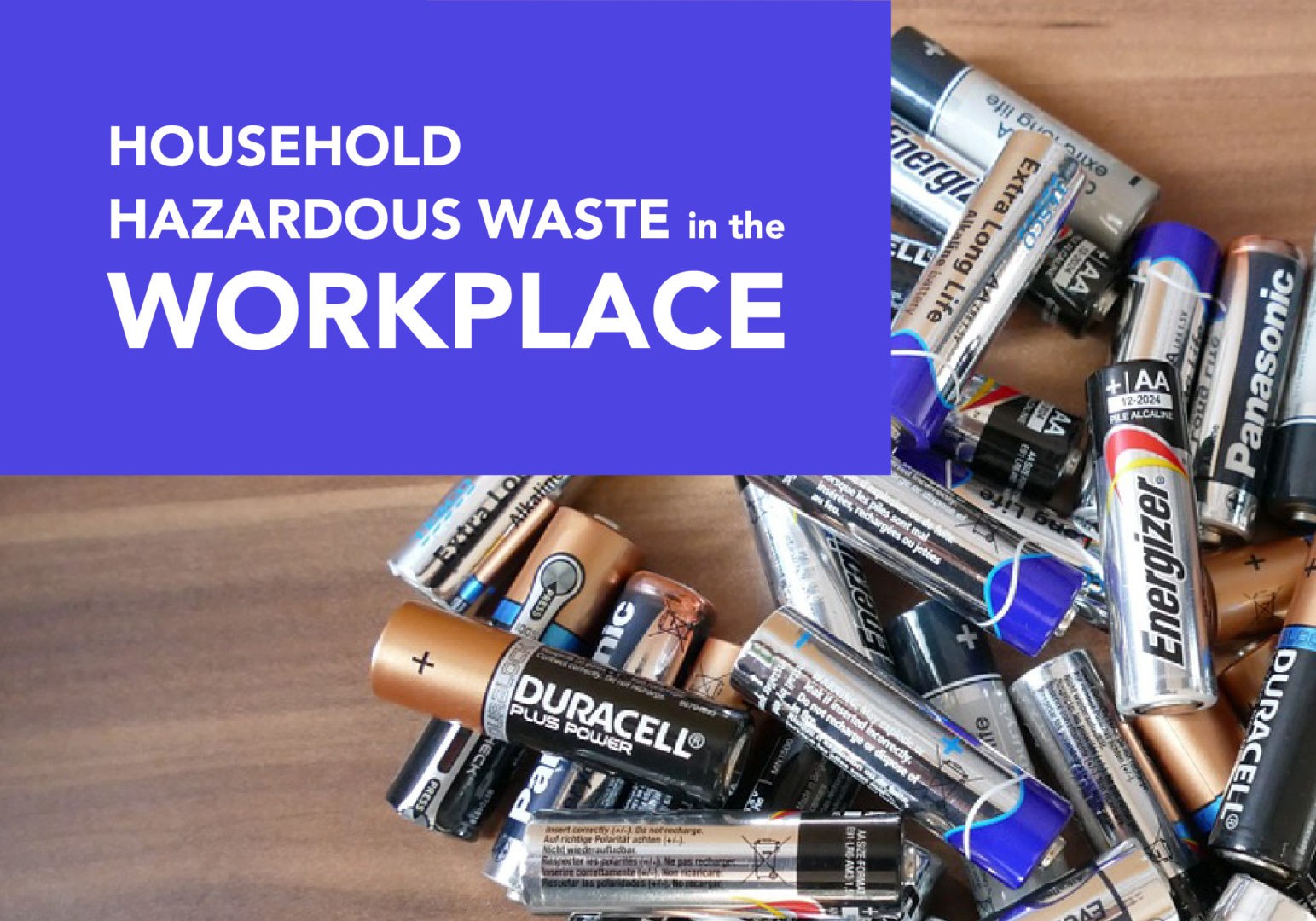Air-conditioned offices fall quiet during summer months for many operations as field crews switch their morning routine from catching up on emails to rummaging around storage spaces equipping themselves for days spent outside. We all know time is money (it’s a cliché for a reason), so many times these spaces can be a victim of clutter after just a few days of heavy foot traffic which can lead to substantial problems down the road. The issue with clutter in workplace storage areas, aside from the annoyance, is that household hazardous waste (HHW) is all too often pushed aside. Instead of placing it back on the shelf, whatever surprises you find should be disposed of properly if it is past its prime.
Do not let the name deceive you – household hazardous waste (HHW) is just as common in garages and offices as it is in your own home. We are all guilty of it; leaving an old can of paint to collect dust “for touch-ups later”, setting aside a spent car battery “just in case”, or even adding to your own model of the Leaning Tower of Pisa made of fluorescent bulbs.
Leaving these things sitting around a garage does not appear to be a big deal, but leaving these kinds of materials unattended for too long can pose a risk to workers and the environment if not disposed of or stored properly. Improperly disposing of hazardous liquids in a drain can contaminate water or soil, or even damage infrastructure. Pitching HHW in the trash could potentially harm trash collectors and pose a further environmental threat when it reaches the landfill.
If you find something with a caution label on it, pause before throwing in the dumpster – it will identify the kind of hazard it could present if improperly stored or disposed of.
HHW is categorized in one of four ways and will be labeled as such:
- Ignitable (silicon-based caulking products, charcoal, automotive fluids, oxygen tanks)
- Corrosive (alkaline batteries, hydrogen peroxide)
- Reactive (chlorine bleach, ammonia)
- Toxic/Poison (fluorescent light bulbs, rat poison, fertilizer)
As you can probably guess, disposing of household hazardous waste is not always the most exciting project, but it is something you can do yourself for little to no cost. Many communities have set up hazardous waste collection days to make it easy. A quick Google search of your city or county’s hazardous waste collection day can point you in the right direction. Albeit not the most thrilling task, it is always a better option than pouring things down a storm or sanitary sewer drain, leaving the substance-free to contaminate groundwater, surface water, or wastewater treatment plants.
The easiest way to reduce the need to dispose of HHW is to reduce the amount you purchase. Planning any processes that require these materials will point you towards the correct amount to buy in the first place – and less to dispose of in the future. Not only will it save you a headache, but probably some cash as well. Proper storage of hazardous materials can also increase shelf-life and decrease the risk of accidental exposure, ignition, or corrosion. Alternatively, you can research natural substitutions for some things such as household cleaners.
When to call in reinforcements
In general, household hazardous waste can be safely disposed of at drop-off sites if properly contained with minimal risk of the substance being released.
If a HHW is released, some wastes can pose greater problems than others and should be handled with extreme care or by a professional. A good example is mercury; an old thermometer containing mercury can be safely disposed of HHW drop off sites (it’s illegal to dispose of in the trash). However, if you drop mercury-containing items and the substance is released, recovery can be difficult and should be done by trained professionals using appropriate tools. Mercury on the move can give off harmful vapors for years if not recovered. Other examples include oils, solvents, or gasoline that has leaked in quantities large enough to affect soil, groundwater, and surface water. Lead-acid automotive batteries with compromised casings pose greater risk and may also require assistance, mixing these chemicals could result in reactive behavior.
If you ever have any questions about what can or cannot be thrown in the trash or if something on premises should be handled by a professional, get in contact with us.

